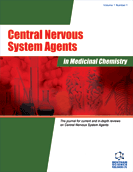
Full text loading...
More than 15% of women develop symptoms of depression during pregnancy, which often affects the mental and physical development of the newborn by altering its intestinal microbiota. Previous studies revealed that the gut microbiota plays a crucial role in the maturation of systems involved in the gut-brain axis, including the gastrointestinal system, the immune system, and the hypothalamic-pituitary-adrenal system axis.
This study aims to explore the cross-talk between the prenatal depression process and neonatal intestinal microbiota diversity. A total of 100 differentially expressed genes (DEGs) associated with prenatal depression were collected from various scientific publications and databases. Bioinformatics tools were used to analyze these DEGs. The STRING database. ToppGene database and DICE were employed for this integrative analysis.
The network generated by the STRING database identified six pivotal genes: TNF, BDNF, IL-6, NR3C1, IGF2, and POMC. These genes regulate response to endogenous hormones, particularly cortisol secretion in newborns, as well as inhibiting serotonin secretion. Moreover, these genes are linked to major depressive disorder and other mental diseases, contributing to maternal and neonatal gut microbiota dysbiosis. Analysis using ToppGene and DICE’s further validated the biological processes identified by String, including the regulation of cellular cortisol secretion, metabolic processes, and serotonin inhibition.
The bioinformatics tools employed in this study allowed us to identify pivotal genes involved in prenatal depression, their associated signaling pathways, and their roles in modulating maternal and neonatal gut microbiota.

Article metrics loading...

Full text loading...
References


Data & Media loading...
Supplements

